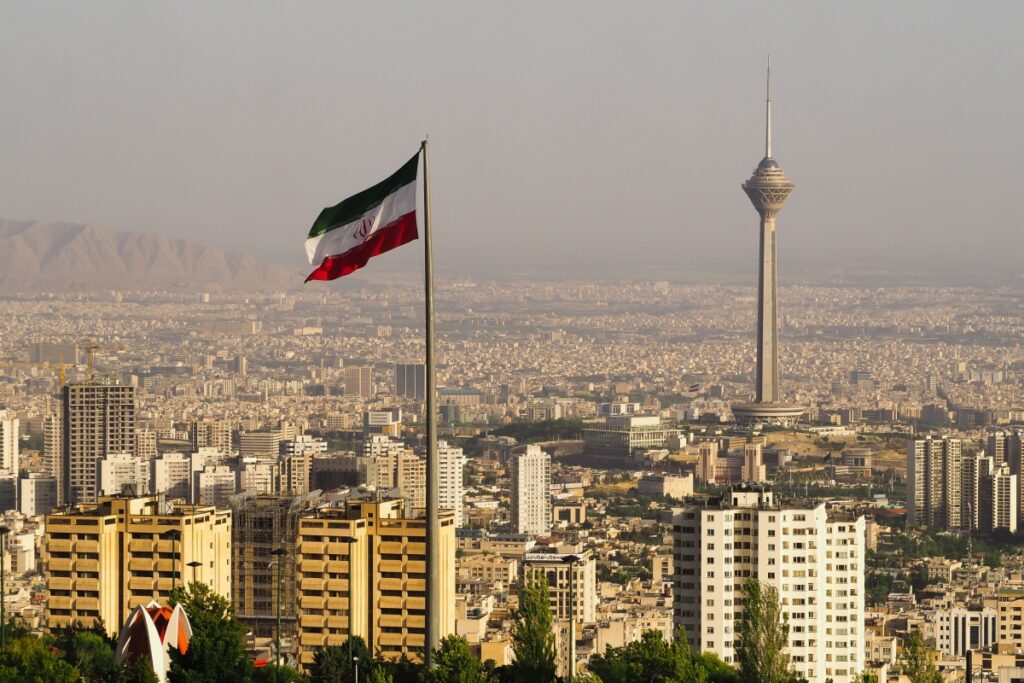Diplomatic Stalemate Over Iran’s Nuclear Program
On September 19, 2025, the United Nations Security Council convened to vote on a resolution aimed at preventing the reimposition of sanctions on Iran under the 2015 nuclear agreement, known as the Joint Comprehensive Plan of Action (JCPOA). The resolution, introduced by South Korea, the current president of the council, failed to secure the necessary support, garnering only four votes in favor—China, Russia, Pakistan, and Algeria.
The remaining members either abstained or voted against the measure, effectively allowing the sanctions to take effect. The sanctions, triggered by France, Germany, and the United Kingdom (collectively known as the E3), include bans on arms sales, restrictions on ballistic missile development, asset freezes, travel bans, and prohibitions on producing nuclear-related technology. These measures were designed to be automatically reimposed if Iran was found to be in non-compliance with the agreement.
The E3 initiated the snapback process in response to Iran’s actions, including uranium enrichment beyond the agreed limits, restrictions on International Atomic Energy Agency (IAEA) inspections, and the accumulation of uranium stockpiles exceeding the JCPOA thresholds. European officials emphasized that Iran had not taken the necessary steps to prevent the restoration of sanctions, urging Tehran to demonstrate full cooperation with the IAEA and allow inspections of all nuclear sites without delay.
The failure of the resolution has left the diplomatic channels open to further contention. The lack of support for the resolution from key council members signals the growing complexity of the Iran nuclear issue. Some countries, such as China and Russia, remain steadfast in their support of Iran’s right to pursue its nuclear program, while others, including the United States, stand firm in their position that Iran’s actions are threatening international security.
Iran’s Response and Withdrawal of Resolution
In a related development, Iran withdrew a resolution it had co-sponsored with China, Russia, and other countries at the IAEA General Conference. The resolution condemned attacks on nuclear facilities, specifically criticizing recent Israeli and U.S. strikes on Iranian nuclear sites. Iran cited a desire for unity and international pressure as reasons for deferring the draft until the following year. The withdrawal followed heavy U.S. lobbying, including threats to reduce funding to the IAEA if the resolution was adopted. Iran had previously suspended cooperation with the IAEA after the June 2025 conflict, during which Israeli and U.S. forces targeted Iranian nuclear facilities.
The decision to withdraw the resolution was also influenced by the escalating tensions surrounding Iran’s nuclear ambitions. Tehran has criticized the international community’s response to its nuclear activities, accusing countries like the U.S. of unfairly using the IAEA to advance political agendas rather than focusing solely on ensuring nuclear safety and non-proliferation. Despite these challenges, Tehran maintains that its nuclear program is entirely peaceful, designed to meet its energy needs, and is in compliance with international regulations.
Despite the withdrawal of the resolution, tensions remain high. Iran continues to assert that its nuclear program is peaceful and has criticized what it perceives as politicization and coercion within the IAEA. The situation underscores the complexities of international diplomacy concerning Iran’s nuclear activities.
Prospects for Future Diplomacy
The failure of the Security Council resolution and the withdrawal of the IAEA resolution have left the diplomatic landscape uncertain. While the E3 nations have expressed openness to future negotiations, they have also made it clear that the reimposition of sanctions is imminent unless Iran takes concrete steps to comply with the JCPOA. Iran, on the other hand, maintains that the sanctions lack legal justification and has threatened to withdraw from the Nuclear Non-Proliferation Treaty if the measures are enacted.
The international community remains divided on how to address Iran’s nuclear ambitions. The broader geopolitical implications of this dispute are substantial, as the outcome will affect not only regional stability but also global security frameworks. If Iran proceeds with its threats to abandon the NPT, it could prompt other countries in the region to pursue similar pathways, triggering a new nuclear arms race.
The coming weeks will be critical in determining whether diplomatic efforts can resume or if the situation will escalate further. The outcome will have significant implications for regional stability and the global non-proliferation regime. If both sides fail to compromise, the world could face the prospect of an increasingly volatile Middle East. Furthermore, the reimposition of sanctions will likely have a devastating effect on the Iranian economy, exacerbating domestic challenges and possibly leading to further internal instability.
As of now, the reimposition of sanctions appears set to proceed, with the potential to strain relations between Iran and the international community. The path forward remains uncertain, and the situation continues to evolve. Diplomatic efforts will need to intensify in order to avoid further escalation, but the current state of affairs suggests that a resolution to the crisis remains elusive.


